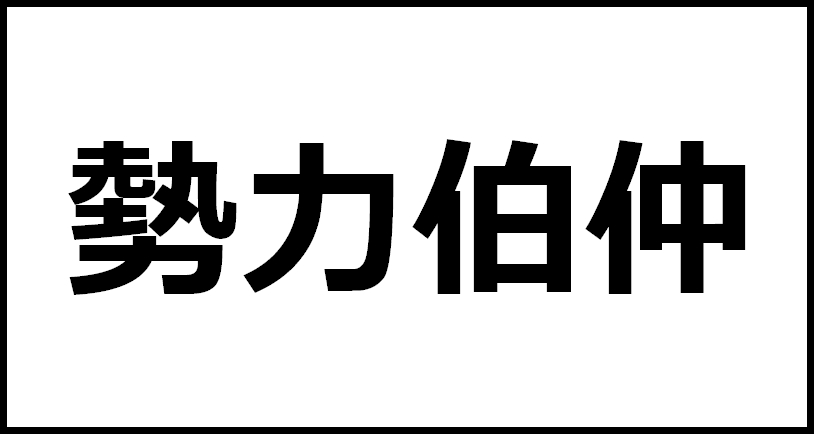勢力伯仲について。四字熟語の勢力伯仲の読み方や意味、英語や外国語での意味をまとめました。
勢力伯仲について
勢力伯仲の読み方・意味
| 四字熟語 | 勢力伯仲 |
| 読み方 | せいりょくはくちゅう |
| カタカナ読み | セイリョクハクチュウ |
| ローマ字読み | seiryokuhakuchu |
| 読みの文字数 | 10文字読みの四字熟語 |
| 頭文字 | 「せ」から始まる四字熟語 |
| 構成する文字 | ・仲 ・伯 ・力 ・勢 |
| 意味 | 互いの力が拮抗していて、優劣をつけるのが難しいこと。伯は長男、仲は次男のことで、伯仲はよく似ていて、力がほぼ同じであることのたとえ。 |
勢力伯仲の意味(外国語)
勢力伯仲の外国語での意味をまとめました。
| 英語 | Each other’s power is antagonistic, and it is difficult to judge superiority and inferiority. Haku means the eldest son, and Naka means the second son. |
| スペイン語 | El poder de cada uno es antagónico, y es difícil juzgar la superioridad y la inferioridad. Haku significa el hijo mayor y Naka significa el segundo hijo. |
| イタリア語 | Il potere dell’altro è antagonistico ed è difficile giudicare la superiorità e l’inferiorità. Haku significa il figlio maggiore e Naka significa il secondo figlio. |
| ポルトガル語 | O poder de cada um é antagônico e é difícil julgar superioridade e inferioridade. Haku significa o filho mais velho e Naka significa o segundo filho. |
| フランス語 | Il potere dell’altro è antagonistico ed è difficile giudicare la superiorità e l’inferiorità. Haku significa il figlio maggiore e Naka significa il secondo figlio. |
| 中国語 | 彼此的力量是对立的,难分高下。 Haku是长子的意思,Naka是次子的意思。 |
| 韓国語 | 서로의 힘이 길항하고 있어 우열을 붙이기가 어려운 것. 백은 장남, 사이는 차남으로, 백仲는 닮아 있고, 힘이 거의 같은 것의 비유. |


